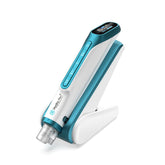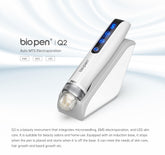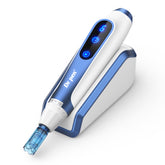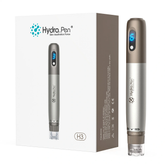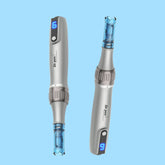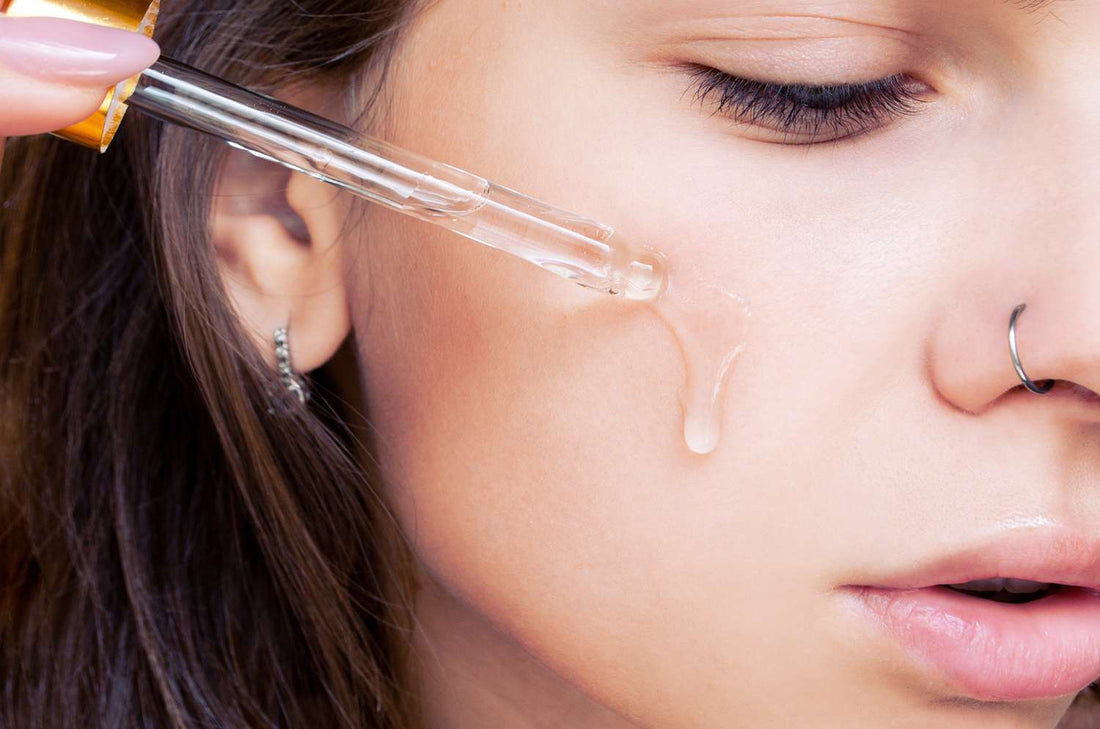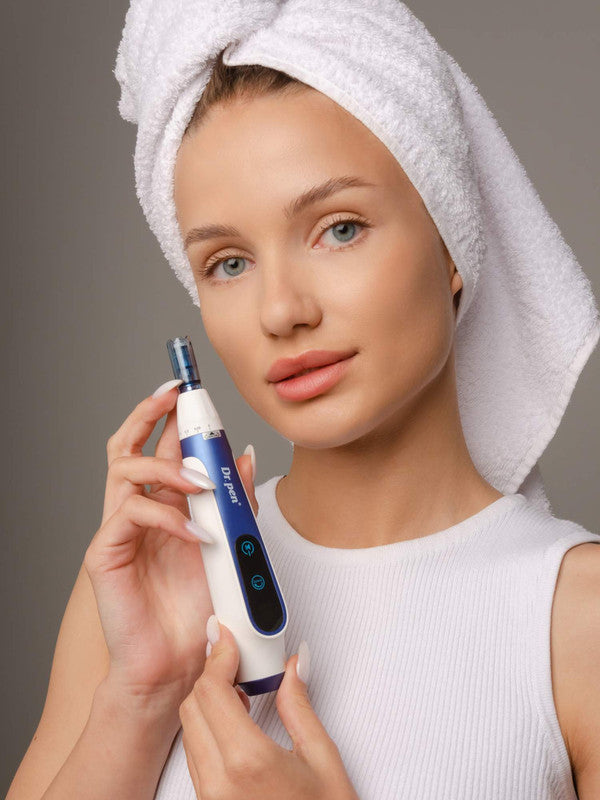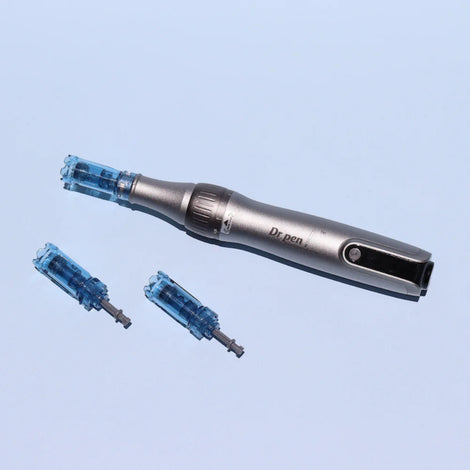What is hyaluronic acid?
Hyaluronic (pronounced hi-ah-lew-ron-ic) acid — also known as hyaluronan or hyaluronate - is a sticky, slippery substance that your body produces naturally. Scientists have found hyaluronic acid in the body, especially in the eyes, joints and skin.
What does hyaluronic acid do for you?
Hyaluronic acid is a remarkable substance because of all its benefits and uses in your body. Here are just a few of the benefits of hyaluronic acid:
It helps to keep things running smoothly. Hyaluronic acid helps your joints work like a well-oiled machine. It prevents pain and injuries caused by the friction of bones against each other.
It helps to keep things moist. Hyaluronic acid is very good at retaining water. A quarter teaspoon of hyaluronic acid holds about one and a half gallons of water. That is why hyaluronic acid is often used to treat dry eyes. It is also used in moisturizing creams, lotions, ointments and serums.
It makes your skin supple. Hyaluronic acid helps stretch and stretch the skin and reduces skin wrinkles and lines. Hyaluronic acid has also been proven to help wounds heal faster and can reduce scarring.
How is it done?
Hyaluronic acid is usually produced by fermenting certain types of bacteria. Rooster combs (the red, Mohawk-like growth on the top of a rooster's head and face) are also a common source.
Is hyaluronic acid safe?
Yes Research shows that hyaluronic acid is safe to use. Reactions or side effects of hyaluronic acid are rare and its use is safe if you are pregnant or breastfeeding.
How does hyaluronic acid interact with other products?
Products that combine hyaluronic acid with other drugs or compounds may have some risks of side effects.
Supplements, vitamins, etc. It is important to inform your healthcare provider about all medications you are taking, including. They can help you better understand possible concerns.
How can I take hyaluronic acid?
There are many ways to take hyaluronic acid (on its own or in combination products). Many of them are available over the counter. Some of them need a doctor's prescription. For some, you need to see a trained medical professional.
Jul a few of the different ways you can get hyaluronic acid (available without a prescription) include:
By mouth: Hyaluronic acid comes in the form of dietary supplements and pills. There is even a liquid form that you can mix with water and drink.
Taking hyaluronic acid by mouth can have many benefits. These include reducing arthritis pain, improving skin health, and more.
On your skin: Hyaluronic acid products come in various forms that you apply to your skin. These include shampoos, lotions, creams, gels, ointments, patches and serums. You can also buy hyaluronic acid powder and mix it with water to create a hyaluronic acid serum that you can apply to your skin.
Hyaluronic acid has beneficial properties when used on your skin. It is especially useful for reducing the appearance of wrinkles and age lines.
Eye drops: A wide variety of eye drops contain hyaluronic acid.
For intimate contact: Hyaluronic acid is a common ingredient in gels, creams or personal lubricants for vaginal dryness or pain, especially for women experiencing menopause.
Hyaluronic acid is also available by prescription in the following forms:
By Injection: Hyaluronic acid injections into your joints can relieve pain caused by arthritis. Healthcare providers may prescribe it off-label to treat bladder pain (such as pain caused by interstitial cystitis).
Under your skin: Fillers containing hyaluronic acid and collagen (a natural protein that is also found in your body) are approved for injection under your skin. These fillers help restore the natural shape and appearance, such as treating acne scars or adding volume to the lips.
In your nose: Some medications use hyaluronic acid because it helps your body absorb them, especially when taken through your nose.
With an inhaler / nebulizer: Hyaluronic acid can treat respiratory (respiratory) problems such as asthma or infections.
Remember, only trained and qualified medical professionals should do injections. While experts say that hyaluronic acid is safe, improper use, especially when injecting, can lead to serious complications and even death.
FREQUENTLY ASKED QUESTIONS
How does hyaluronic acid work?
Hyaluronic acid belongs to long, complex chain-like molecules called polymers. There are many points on the chain where other chemical compounds (such as water, for example) can hold on. That's why a quarter teaspoon of hyaluronic acid can hold about a gallon and a half of water, which makes it the best polymer — natural or artificial — to absorb water (and an important ingredient in moisturizing products).
Because it has so much space for other molecules to cling on, hyaluronic acid is great for transporting other molecules into your body. It also has the ability to attach itself to cells, so the targeted delivery of drugs using hyaluronic acid is an important subject of study.
The chain-like structure of hyaluronic acid also means that it can act as a scaffolding structure that allows tissues to grow. This is an important step in how the wounds on your body heal. Scientists have also found hyaluronic acid in human embryos and are studying what role hyaluronic acid plays in reproduction and development.
Does hyaluronic acid work?
Yes, depending on how it is used. It's a versatile molecule, and scientists are still finding new and useful ways to use it. Currently, it is most often used for skin, joint and eye health. It is also the subject of hundreds of scientific studies and experiments around the world.
What does hyaluronic acid do for the skin?
Long-term use of hyaluronic acid serum on your skin or in an oral supplement can improve overall skin health. It's also great for helping improve overall skin elasticity and elasticity (i.e. making your skin more supple and soft).
Is hyaluronic acid good for acne?
Hyaluronic acid is widely used in fillers that repair or hide the scars left behind by acne. There has been a limited amount of research on combinations of hyaluronic acid and other drugs for the treatment of acne, but so far there is not much evidence that they are effective.
Is hyaluronic acid safe?
Yes, depending on how it is used. Over-the-counter hyaluronic acid serums and products applied to your skin (creams, lotions, etc.) or are considered safe in eye care products. Hyaluronic acid supplements taken by mouth are also considered safe (but you should still tell your healthcare provider about them, as you do for other medications, vitamins, or supplements).
Prescription hyaluronic acid products should be taken exactly as directed by your healthcare professional. Any injections containing hyaluronic acid should only be done by a licensed, qualified medical professional.
When should I talk to my healthcare provider about hyaluronic acid?
If you want to use October as a supplement, you may want to talk to your healthcare provider about hyaluronic acid. You may also want to ask them about treatment options that use hyaluronic acid for the following conditions or purposes:
Dr. Pen Store team:
Hyaluronic acid has many uses and benefits, from improving skin, eye and joint health to accelerating wound healing. Like any medication or supplement, it's important to talk to your healthcare provider before incorporating hyaluronic acid into your health regimen.
Hyaluronic (pronounced hi-ah-lew-ron-ic) acid — also known as hyaluronan or hyaluronate - is a sticky, slippery substance that your body produces naturally. Scientists have found hyaluronic acid in the body, especially in the eyes, joints and skin.
What does hyaluronic acid do for you?
Hyaluronic acid is a remarkable substance because of all its benefits and uses in your body. Here are just a few of the benefits of hyaluronic acid:
It helps to keep things running smoothly. Hyaluronic acid helps your joints work like a well-oiled machine. It prevents pain and injuries caused by the friction of bones against each other.
It helps to keep things moist. Hyaluronic acid is very good at retaining water. A quarter teaspoon of hyaluronic acid holds about one and a half gallons of water. That is why hyaluronic acid is often used to treat dry eyes. It is also used in moisturizing creams, lotions, ointments and serums.
It makes your skin supple. Hyaluronic acid helps stretch and stretch the skin and reduces skin wrinkles and lines. Hyaluronic acid has also been proven to help wounds heal faster and can reduce scarring.
How is it done?
Hyaluronic acid is usually produced by fermenting certain types of bacteria. Rooster combs (the red, Mohawk-like growth on the top of a rooster's head and face) are also a common source.
Is hyaluronic acid safe?
Yes Research shows that hyaluronic acid is safe to use. Reactions or side effects of hyaluronic acid are rare and its use is safe if you are pregnant or breastfeeding.
How does hyaluronic acid interact with other products?
Products that combine hyaluronic acid with other drugs or compounds may have some risks of side effects.
Supplements, vitamins, etc. It is important to inform your healthcare provider about all medications you are taking, including. They can help you better understand possible concerns.
How can I take hyaluronic acid?
There are many ways to take hyaluronic acid (on its own or in combination products). Many of them are available over the counter. Some of them need a doctor's prescription. For some, you need to see a trained medical professional.
Jul a few of the different ways you can get hyaluronic acid (available without a prescription) include:
By mouth: Hyaluronic acid comes in the form of dietary supplements and pills. There is even a liquid form that you can mix with water and drink.
Taking hyaluronic acid by mouth can have many benefits. These include reducing arthritis pain, improving skin health, and more.
On your skin: Hyaluronic acid products come in various forms that you apply to your skin. These include shampoos, lotions, creams, gels, ointments, patches and serums. You can also buy hyaluronic acid powder and mix it with water to create a hyaluronic acid serum that you can apply to your skin.
Hyaluronic acid has beneficial properties when used on your skin. It is especially useful for reducing the appearance of wrinkles and age lines.
Eye drops: A wide variety of eye drops contain hyaluronic acid.
For intimate contact: Hyaluronic acid is a common ingredient in gels, creams or personal lubricants for vaginal dryness or pain, especially for women experiencing menopause.
Hyaluronic acid is also available by prescription in the following forms:
By Injection: Hyaluronic acid injections into your joints can relieve pain caused by arthritis. Healthcare providers may prescribe it off-label to treat bladder pain (such as pain caused by interstitial cystitis).
Under your skin: Fillers containing hyaluronic acid and collagen (a natural protein that is also found in your body) are approved for injection under your skin. These fillers help restore the natural shape and appearance, such as treating acne scars or adding volume to the lips.
In your nose: Some medications use hyaluronic acid because it helps your body absorb them, especially when taken through your nose.
With an inhaler / nebulizer: Hyaluronic acid can treat respiratory (respiratory) problems such as asthma or infections.
Remember, only trained and qualified medical professionals should do injections. While experts say that hyaluronic acid is safe, improper use, especially when injecting, can lead to serious complications and even death.
FREQUENTLY ASKED QUESTIONS
How does hyaluronic acid work?
Hyaluronic acid belongs to long, complex chain-like molecules called polymers. There are many points on the chain where other chemical compounds (such as water, for example) can hold on. That's why a quarter teaspoon of hyaluronic acid can hold about a gallon and a half of water, which makes it the best polymer — natural or artificial — to absorb water (and an important ingredient in moisturizing products).
Because it has so much space for other molecules to cling on, hyaluronic acid is great for transporting other molecules into your body. It also has the ability to attach itself to cells, so the targeted delivery of drugs using hyaluronic acid is an important subject of study.
The chain-like structure of hyaluronic acid also means that it can act as a scaffolding structure that allows tissues to grow. This is an important step in how the wounds on your body heal. Scientists have also found hyaluronic acid in human embryos and are studying what role hyaluronic acid plays in reproduction and development.
Does hyaluronic acid work?
Yes, depending on how it is used. It's a versatile molecule, and scientists are still finding new and useful ways to use it. Currently, it is most often used for skin, joint and eye health. It is also the subject of hundreds of scientific studies and experiments around the world.
What does hyaluronic acid do for the skin?
Long-term use of hyaluronic acid serum on your skin or in an oral supplement can improve overall skin health. It's also great for helping improve overall skin elasticity and elasticity (i.e. making your skin more supple and soft).
Is hyaluronic acid good for acne?
Hyaluronic acid is widely used in fillers that repair or hide the scars left behind by acne. There has been a limited amount of research on combinations of hyaluronic acid and other drugs for the treatment of acne, but so far there is not much evidence that they are effective.
Is hyaluronic acid safe?
Yes, depending on how it is used. Over-the-counter hyaluronic acid serums and products applied to your skin (creams, lotions, etc.) or are considered safe in eye care products. Hyaluronic acid supplements taken by mouth are also considered safe (but you should still tell your healthcare provider about them, as you do for other medications, vitamins, or supplements).
Prescription hyaluronic acid products should be taken exactly as directed by your healthcare professional. Any injections containing hyaluronic acid should only be done by a licensed, qualified medical professional.
When should I talk to my healthcare provider about hyaluronic acid?
If you want to use October as a supplement, you may want to talk to your healthcare provider about hyaluronic acid. You may also want to ask them about treatment options that use hyaluronic acid for the following conditions or purposes:
- Skin health (especially dryness, scarring, stiffness and skin diseases such as scleroderma and actinic keratosis).
- Eye health, especially for treating dry eyes.
- Joint health, especially in the treatment of arthritis and soft tissue injuries.
- For wounds that are slow to heal.
- As a treatment option for bladder pain, especially pain caused by interstitial cystitis.
- Respiratory conditions such as asthma.
Dr. Pen Store team:
Hyaluronic acid has many uses and benefits, from improving skin, eye and joint health to accelerating wound healing. Like any medication or supplement, it's important to talk to your healthcare provider before incorporating hyaluronic acid into your health regimen.




